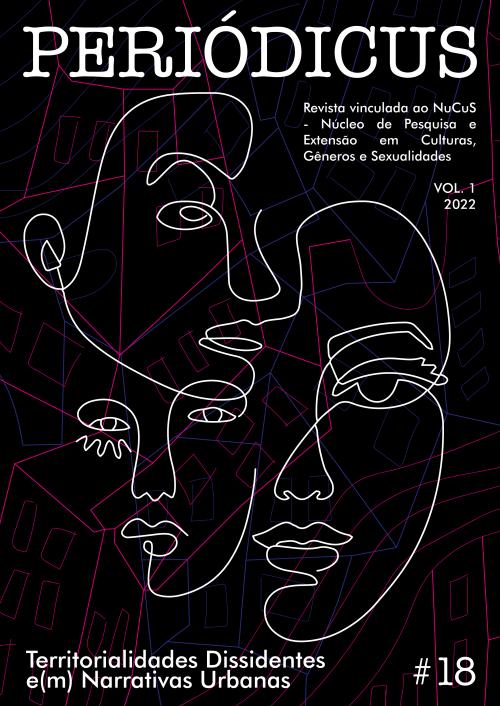From closets to basements
the collective memory of dissident bodies in public spaces
DOI:
https://doi.org/10.9771/peri.v1i18.50132Abstract
This essay proposes to guide the occupation of urban territory by LGBTQIA+ people, as well as to question the conditionalities of the right to the city for those who are sexual and/or gender dissidents. The monstrification of subalternized bodies is not a recent practice, but a direct inheritance of the colonization process that attributed – notably to black and indigenous people – the sub-human status as a destructive prerogative. From this, I discuss how the insertions and purges of LGBTQIA+ bodies from the urban space take place, placing this discussion specifically in the city of Salvador, Bahia, from establishments aimed mainly at the lesbian and dyke local population. With the portrait of the bars Caras & Bocas and Sapoti, I question the visible and invisible geographical barriers that vilify the right to public affection and to dissident collective memory, built from and by means of socialization spaces compulsorily boycotted by heteronormative civil society.
Downloads
Downloads
Published
How to Cite
Issue
Section
License
Copyright (c) 2022 Camila Daltro Ferreira

This work is licensed under a Creative Commons Attribution-NonCommercial 4.0 International License.
Authors who publish in this journal agree to the following terms:
Authors retain copyright and grant the journal the right of first publication, with the work simultaneously licensed under a Creative Commons Attribution Noncommercial License that allows the work to be shared with acknowledgment of authorship and initial publication in this journal, but prohibits commercial use.
Authors are authorized to enter into separate additional contracts for non-exclusive distribution of the version of the work published in this journal (e.g., publishing in an institutional repository or as a book chapter), with acknowledgment of authorship and initial publication in this journal.
Authors are permitted and encouraged to publish and distribute their work online (e.g., in institutional repositories or on their personal website) at any point before or during the editorial process, as this can generate productive changes and increase the impact and citation of the published work (see The Effect of Open Access).








